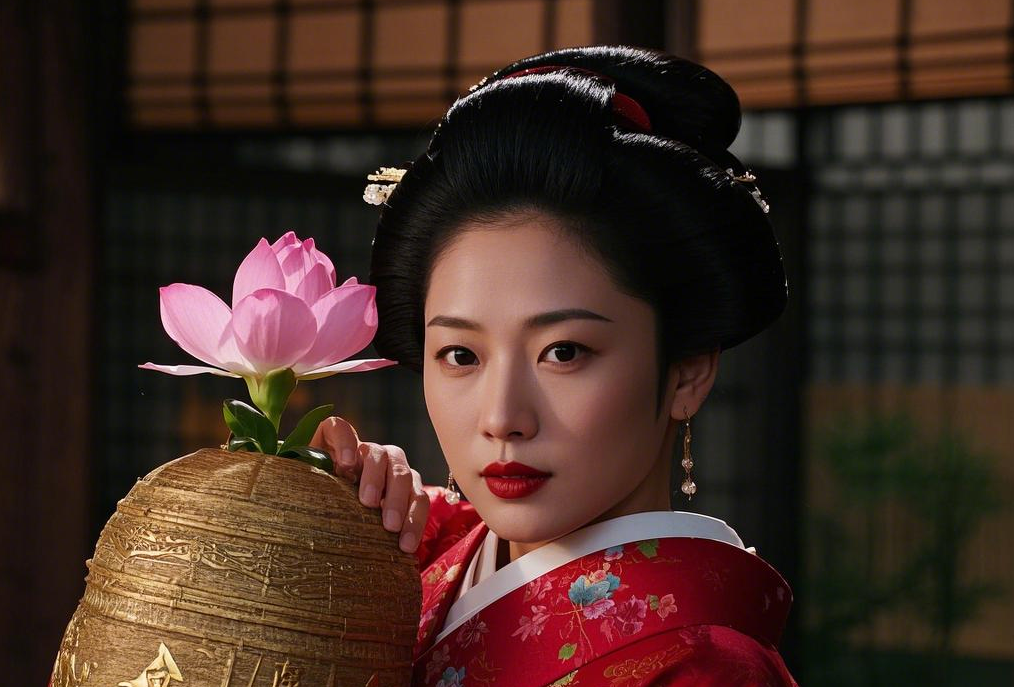A Blossoming Love in the Edo Era
In the heart of the Edo era, Japan was a land of strict social hierarchies, where the samurai held the highest status, and the commoners lived their lives in the shadow of the ruling class. Amidst the bustling streets of Edo, filled with the clatter of wooden sandals on cobblestones and the smell of freshly brewed tea wafting from teahouses, a love story was about to unfold.
Aiko was a young and vibrant commoner girl who worked in her family's small flower shop. Her hair was as black as midnight, usually tied in a simple yet elegant style, and her eyes sparkled like the clear waters of a mountain stream. She had a passion for flowers and a kind heart that endeared her to all who knew her. Every day, she would arrange the most beautiful bouquets, using her creativity to combine different blossoms and create a symphony of colors.
On a warm spring day, a young samurai named Hiroshi entered the flower shop. He was on a mission to purchase a gift for his mother, who was celebrating her birthday. Hiroshi was tall and slender, with a well - groomed topknot and a face that exuded both strength and kindness. His kimono was of the finest quality, and his katana was sheathed at his side, a symbol of his status.
As Aiko helped Hiroshi select the perfect flowers, their eyes met, and a spark of something magical passed between them. Hiroshi was immediately drawn to Aiko's gentle nature and her love for the delicate blossoms. Aiko, on the other hand, was intrigued by the noble presence of the samurai.
Over the next few days, Hiroshi found himself returning to the flower shop, not just for flowers, but to spend time with Aiko. They would talk about their dreams, their hopes, and the beauty of the changing seasons. Aiko would share stories of the people in the neighborhood, while Hiroshi would tell Aiko about his training as a samurai and the strict code of bushido he had to follow.
However, their love was not without its challenges. The social divide between a samurai and a commoner was vast. Hiroshi's family would never approve of his relationship with a girl from a lower class, and Aiko's family was worried about the potential consequences of such a forbidden love.
One day, Hiroshi's father, a high - ranking samurai, discovered his son's relationship with Aiko. He was furious and forbade Hiroshi from seeing her again. He reminded Hiroshi of his duty to the family and the importance of maintaining their social status.
Hiroshi was heartbroken but determined not to give up on their love. He decided to prove to his father that Aiko was not just a commoner, but a woman of great virtue and intelligence. He asked Aiko to accompany him to a traditional tea ceremony, where he would introduce her to his father in a more formal setting.
Aiko, nervous but excited, agreed. She spent days preparing for the tea ceremony, learning the intricate rituals and donning a beautiful kimono. When the day arrived, she entered the tea room with grace and poise.

During the tea ceremony, Aiko's knowledge of the art of tea and her elegant manners impressed Hiroshi's father. He began to see that Aiko was indeed a remarkable young woman. Although he still had reservations about the social difference, he could not deny the depth of his son's love for her.
In the end, after much negotiation and compromise, Hiroshi's father reluctantly gave his blessing to the relationship. Hiroshi and Aiko were married in a simple but beautiful ceremony, surrounded by their friends and family. Their love story became an inspiration in the neighborhood, a story of how love could overcome the rigid social barriers of the Edo era. And as the cherry blossoms bloomed year after year, their love only grew stronger, a testament to the power of the human heart.